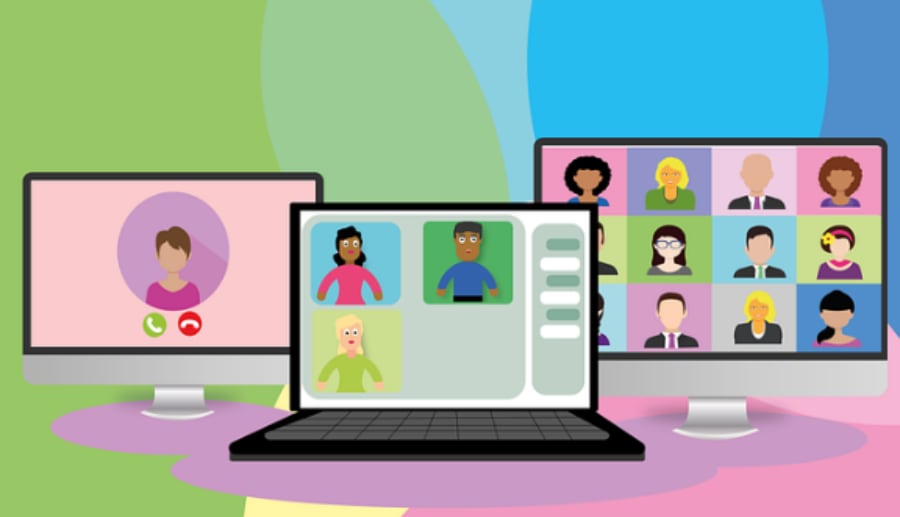Written by Russ Gadzhiev, PhD
“Research is seeing what everybody else has seen and thinking what nobody else has thought.” – Albert Szent-Györgyi
“Research is formalized curiosity. It is poking and prying with a purpose.” – Zora Neale Hurston
“I believe in innovation and that the way you get innovation is you fund research and you learn the basic facts.” – Bill Gates
Research skills are becoming more and more necessary when it comes to looking for a job and becoming successful in one. And there are many reasons for that. First of all, if you are looking for a job research skills are important per se – you need to be able to find information, analyze it and make decisions on how to go about using this information. You need to research places where people like you are needed and you need to identify companies where your skills and talents could be harnessed.
Once you have a job having research skills becomes even more important. If you possess good research skills, you are able to identify issues that may be impeding your successful performance at work or that of your fellow co-workers. As a person with good research skills, you are able to produce original ideas and ways of resolving these issues. Likewise, research skills will allow you to get a better understanding of what your competitors want and how their thinking works.
So in this short article, we will talk about the most important research skills that any person looking for a job and becoming successful must seek to develop and acquire.
Collect Data
When most people are asked about what they think research skills are they usually give the same answer: it means collecting data. And it is true – collecting information is indeed at the heart of any research process. There are different ways of collecting data. In this day and age, information can be easily found on the Internet. While it may be sufficient for some jobs, other jobs, more senior ones, and more specialized ones may require you to find information using other ways – libraries, archives, and so on. You may also be required to interview people in order to gather information from them or conduct questionnaires. More sophisticated methods of collecting data include conducting experiments and focus groups. So the more techniques of gathering the information you are familiar with, the better.
Conduct A Thorough Analysis of Information from Different Sources
When you are writing a report for work, it is always a bad idea to rely solely on one source. If you rely only on one source, your report will be one-sided. So it is best to make sure that your report draws on various other sources.
Another issue is the reliability of the sources you are using. Being able to identify which source of information is reliable and which one is not is essential considering the amount of misinformation out there. The Internet is a place where unconfirmed and dubious information can be found in abundance. Of course, it does not mean that you should disregard anything you find on the Internet. But it may be a good idea to conduct a thorough check of the information that you find online. For example, if you have found an online version of a book, it may be a good idea to consult its physical version. Or, for example, if there is a piece of information that is poorly referenced or, is substantiated with a suspicious footnote it is better to dismiss this piece of information as unreliable.
Having unconfirmed and unsubstantiated sources in your work can significantly undermine the validity of your work and your personal reputation. So apart from using the Internet and checking your online sources judiciously, make sure that you turn to sources outside of the online world. After all, there are so many other reliable sources that you can consult for good information including scholarly articles, encyclopedias, databases and scholarly journals.
Use the Internet for Research
Again, it is important to re-state that you should not dismiss the Internet as a source of information entirely. But you need to be able to use it correctly. It is amazing to see that people these days have such an enormous amount of information at their disposal. However, a lot of information does not mean that all that information is of high quality. The ability to work with sources on the Internet is called internet research skills.
Internet research skills include being able to check your sources quickly and find information that is truly relevant to your goals. Having good internet skills also means being able to avoid distractions, giving credit to people who originally posted the information, and organizing your findings in a way that is appropriate.
Author Your Reports
These days, the more responsibilities your job entails, the more likely it is that you may need to be required to write reports. This is one of the most important reasons why research skills are important. Report writing skills are not something that people are born with, but it is something that people must work hard to develop. And the good news is that anybody can develop research skills if they want to.
A report is a summary of information that is presented to a particular audience. This audience may be one or two individuals or even more. Students at universities are often required to write reports to receive their final grades. The goal of any report is to convey information and enhance the readers’ knowledge.
Skills associated with report writing include being able to execute the report in the right format: writing a summary, references, and table of contents. People with good research skills will be able to write a report which presents information in a visual way: with graphs and charts. And of course, those people who possess good research skills will make sure that their report is based on reliable, easily identifiable, and traceable information. They also acknowledge all the sources properly.
Manage Your Research Time
Yes, time management is also an essential part of research skills. In fact, time management skills are directly related to the success of your research. How? Well, we all know that there are only twenty-four hours in one day. Research tasks, such as reports, may require a significant amount of time and to execute them you need to be able to use time effectively.
It is especially true if you have been assigned a research project at work. In this case, you will have a deadline and you will have to complete your task before the required date. So people possessing good research skills will be able to complete their research in time because they have what it takes to do so. Meeting deadlines, setting achievable, short-term goals, relying on one’s strategic thinking, and creating outlines and drafts of your project in time – all these qualities are implied when we talk about research skills.
In this short article, we have discussed the five most important research skills that any student should strive to acquire. The research skills mentioned in this article will be useful to students in a variety of contexts but mainly during their time at university and throughout their careers. So if you are a teacher, think about how you can teach your students to acquire these skills. If you are not sure where to start, you can consult the articles on our Shiminly blog, where our experts discuss research skills at length.
If you are a student, start developing your research skills now. Make it a habit to check the reliability of any information that you are using in your school assignments, acknowledge properly the work of people that you are using in your own work, and make sure you don’t plagiarise. If you are not sure what plagiarism is or if you have never heard about this word before, check out our Shiminly articles where our experts talk about plagiarism and give useful tips on how to avoid it.
Russ Gadzhiev obtained his PhD in history and politics from University of Melbourne. He also holds a master’s degree in International Relations from Moscow State University of International Relations, a top-ranking diplomatic school. Russ is a strong education professional with a history of working in the higher education sector of Australia and effectively communicates with learners from diverse cultural backgrounds. He is enthusiastic about teaching and mentoring, writing, curriculum development, research, information management and public speaking. He is fluent in Russian, English, Spanish and Portuguese.








































